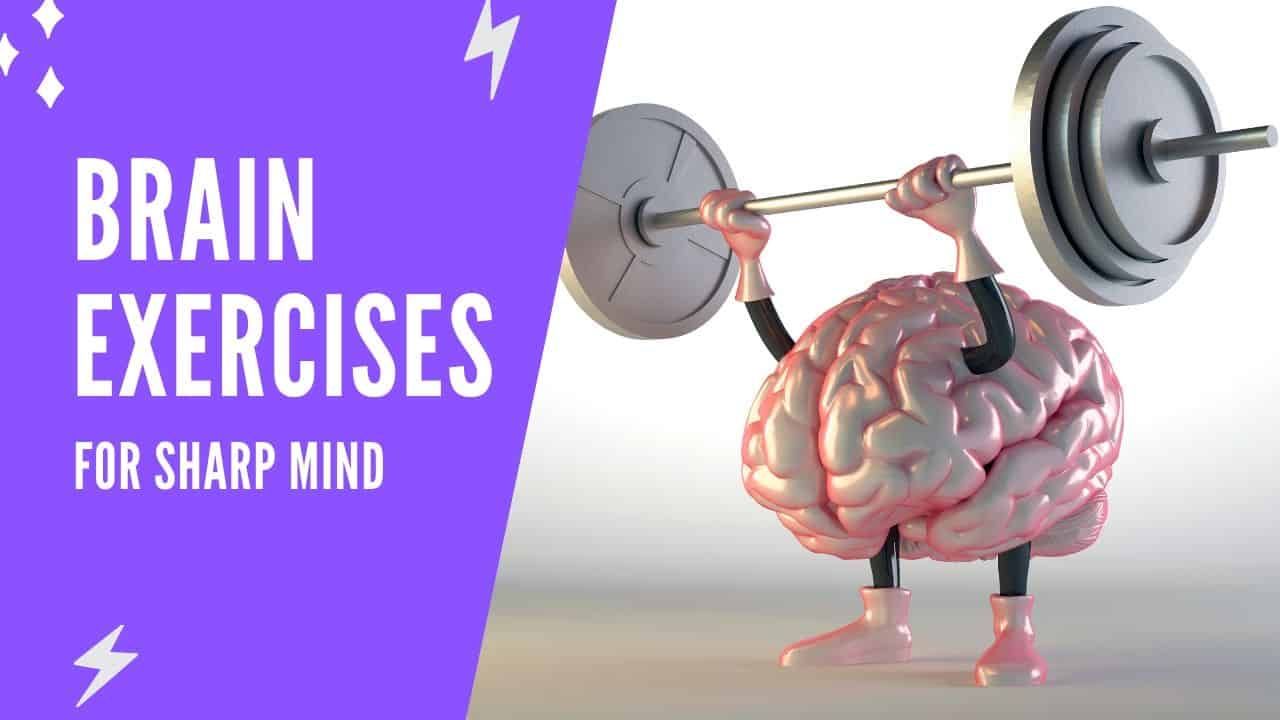Introduction Of Fitness For Mental Health

Introduce the vital connection between exercise and mental well-being. In our fast-paced globe physical fitness is not simply a must-have for our health but also about minding our thoughts. This article will explore how exercise routines can help boost people’s moods, reduce stress, and ensure overall well-being. We start this journey to discover the metamorphic ability of fitness towards mental health.
Section 2: Understanding the Mind-Body Connection Fitness For Mental Health

- **The brain and psychological well-being** Still, its main focus is on the mind-body connection in mental health and wellness. Researches indicate that being involved in regular exercises improves an individual’s physical condition and has profound effects on their mental health.
- **Physical Exercise for Brain Fitness**: A consistent exercise routine raises the levels of endorphins serotonin and dopamine, mood stabilizers neurotransmitters, in our brains. These substances reduce symptoms of anxiety as well as depression hence living a life full of hopefulness.
- **Neuroplasticity and Exercise**: Physical activities result in neuroplasticity or flexibility capacity of the brain which is its capability to change throughout life owing to experience; thus it helps us grow mentally strong.
- **Stress Response and Physical Activity**: Exercising prompts a relaxation response by making the body relax thereby decreasing cortisol levels (stress hormone). Consistent practice can increase resilience against stress while improving daily coping mechanisms.
- **Enhanced Cognitive Function**: Regular exercise enhances cognitive functioning such as attention span, memory retention, and problem-solving among others. By increasing blood supply to various parts of the brain hence creating new neurons; exercise leads to clarity in thinking thus improves reasoning skills.
- **Sleep and Mental Health**: Engaging in exercises has helped many people sleep better thus leading them to have good mental health. It regulates the sleep-wake cycle whereby one gets sound sleep besides reducing insomnia signs thereby improving moods which results in general psychological well-being.
By appreciating the significant influence of physical activities on mind-body connection, one can be able to make informed decisions about keeping fit to improve their mental health. Incorporating regular fitness routines into everyday lives brings about major improvements in mood, stress control, cognitive performance, and quality of life generally.
Section 3: The Impact of Exercise on Brain Chemistry

In the brain’s chemistry, exercise has a substantial impact by influencing the release of neurotransmitters as well as neurotrophic factors crucial for mental health as well as cognition functions.
- **Endorphins and Mood Regulation**: Our bodies secrete endorphins which are known as happiness molecules when we exercise. These chemicals bind to receptors in our brains thereby reducing the wired perception of pain while elating euphoric feelings hence they behave like natural elevators of moods.
- **Serotonin and Stress Reduction**: Physical exercises enhance serotonin levels within the brain of an individual which is a neurotransmitter recognized for mood stabilization and anxiety reduction. Having increased amounts of this chemical leads to tranquility resulting in reduced panic attacks or depression occurrences.
- **Dopamine and Reward Pathways**: Exercise also causes the release of dopamine; a neurotransmitter associated with motivation, reward system, and pleasure. By creating a sense of accomplishment and satisfaction, dopamine helps individuals stick to working out hence supporting habituation toward exercise programs
- **BDNF and Brain Health**: When someone exercises, a protein called brain-derived neurotrophic factor (BDNF) is produced to help with the growth of neurons and their maintenance or function. Such are the reasons individuals with higher BDNF levels experience improved cognitive function; and enhanced neuroplasticity towards preventing neurodegenerative diseases.
- **GABA and Anxiety Reduction**: To begin with, physical activity leads to higher gamma-aminobutyric acid (GABA) levels in the body; it is a neurotransmitter that inhibits brain activity and promotes relaxation. Besides that, elevated GABA levels have been associated with reduced anxiety and improved mood stability.
- **Glutamate and Cognitive Function**: Glutamate levels are affected by workouts in the brain since its primary functions involve learning, memory as well as excitatory neurotransmitters. While this will optimize glutamate for attention, processing speed, and memory retrieval among others, exercise increases cognitive functionality
Similarly important is understanding how exercising influences one’s brain chemistry regarding mental health improvement and cognition enhancement. More so, exercise facilitates the release of useful neurotransmitters as well as neurotrophic factors into the system thus making it healthier than ever before.
Section 4: Stress Reduction Techniques through Physical Activity

The practice of engaging in physical fitness activities is most effective when it comes to dealing with stress and ensuring wellness as a whole. This goes beyond addressing both physiological and psychological aspects of anxiety hence taking a holistic approach to stress management.
- **Biological Response to Stress**: Increased heart rate, high blood pressure, and stiffened muscles are some of the changes that happen to our bodies when we experience stress. These effects can be counteracted by regular exercises because they contribute towards the attainment of a relaxed state besides reducing cortisol production which acts like a hormone involved in responses to stressful conditions.
- **Release of Tension and Muscle Relaxation**: The muscles store tension that can be released through physical activities such as aerobics, weight lifting, and yoga. Furthermore, some exercises imply stretching and movement patterns that encourage the relaxation of muscles due to the reduction of headaches among others.
- **Endorphin Release and Mood Enhancement**: The endorphins are released when one is exercising. In turn, these levels get to rise making an individual feel good about themselves while at the same time minimizing symptoms like anxiety and depression associated with chronic stress.
- **Mindfulness and Stress Reduction**: Some types of exercise such as walking, running, and swimming can be done mindfully – where a person concentrates on the present moment. Mindfulness during workouts helps individuals to steer off from overwhelming thoughts thus bringing in calmness within oneself as well as peace of mind.
- **Social Support and Stress Buffering**: Participating in group exercise classes or team sports fosters social connections and support networks, which play a crucial role in buffering the impact of stress. Emotional resilience can be promoted by sharing experiences with other people as well as bonding during physical activity hence reducing loneliness feelings.
- **Improved Sleep Quality**: Moreover, regular workouts have been shown to better sleep quality which assists in managing stress effectively. Getting enough rest enables stress hormone regulation as well as the restoration of energy needed for coping with everyday life stresses.
Therefore, this method incorporates different angles towards stress relief by addressing both physiological and emotional elements that are responsible for it entirely: By forming regular workout habits we gain resilience; augment wellness; and overcome all life’s strains fitness assistants are unavoidable
Section 5: Building Resilience: Exercise and Coping Mechanisms
- It is important to note that exercising regularly is the best way to ensure one’s ability to deal with adversity and bounce back. One can acquire considerable coping mechanisms through regular physical activity, which would help them navigate obstacles more effectively.
- *STRESS INOCULATION*: Regular exercise serves as “stress inoculation” by putting individuals under controlled physiological stress to gradually build resilience over time. This creates endurance by continually challenging the body’s stress response system and helps those involved to tolerate and cope with everyday events that are likely to stress them medically.
- *EMOTIONAL REGULATION*: Physical activity improves emotional regulation leading to better management of feelings during stressful situations. Exercise offers a healthy channel for emotions thus reducing chances of emotional outbursts and boosting emotional stability.
- Cognitive flexibility: physical activities release neurotrophic factors that enhance neuroplasticity meaning brain adaptiveness hence facilitating cognitive change characterizing individual thought processes, creative problem solving, and quick adaptation as easily as possible if need be.
- Self-efficacy and confidence: Self-confidence increases significantly through meeting fitness goals via regular exercises which raises self-efficacy—one’s believes in his or her power to accomplish tasks or overcome hurdles; when people experience success in their fitness endeavors, they are more confident about tackling issues in other areas of their life
- Sense of mastery: Participating in exercises like trying a new technique or setting a personal record contributes to a sense of mastery which is very important in building resilience. By showing concrete evidence of an individual’s capabilities, these experiences provide support for resilience even when faced with adverse conditions.
- Social support networks: Joining group exercises or team sports helps establish social bonds and supports that are vital during difficult times in our lives such as instances associated with stressful situations. Social support brings not only consolation but also practical help and advice enabling people to go through challenges successfully.
Through their active engagement in regular exercise, and making use of its transformative capacity, individuals can find empowerment within themselves to be resilient enough to flourish despite the unavoidable obstacles or setbacks that life presents.
Section 6: Employing physical activity to cope with anxiety and depression
In recent times, exercise has been increasingly realized to be a powerful antidote for both anxiety and depression, which gives people suffering from these conditions a natural mental health care alternative.
- **Neurochemical Impacts**: Physical activities like exercises enhance the production of chemical messengers such as serotonin, endorphins, and dopamine which regulate mood swings and ultimately provide happiness thereby causing relaxation in an individual’s system thus reducing signs or symptoms linked with anxiety or depression.
- **Stress Relief**: These two psychiatric disorders usually involve stress and high tension. Exercise naturally acts as our body’s sedative thus it helps to decrease cortisol levels produced by our body which are stress hormones. The reason why physically fit individuals can better manage their stress response that in turn affects their mental health status.
- **Cognitive Distraction**: Anxiety disorder and depressive disorders may exhibit negative thinking patterns or rumination These workouts not only serve as moments of peace from negative thoughts but they also help reduce worry by focusing on bodily motion, enhancing cognitive transparency which eventually leads to emotional well-being.
- **Socialization**: Taking part in group exercise classes/team sports provides opportunities for social interaction and support hence important for managing anxiety disorder and major depression disorder (MDD). However, creating camaraderie among similar people diminishes the loneliness felt in this state.
- **Self-esteem** **and Confidence**: Regular exercise results in improved self-esteem that often gets damaged due to anxiety together with depression. This advancement comes after meeting fitness goals while shaping the mind leading to a greater sense of effectiveness or self-respect.
- **Routine** **and Structure**: Routine exercises put some order in everyday life thus becoming very valuable for someone dealing with severe kinds of depression.. In essence, having specific exercise timings gives one a reason to live hence assists against feelings of tiredness as well as inertia that characterizes depression always.
A lot of folks always fight to incorporate physical activity into their lives as a means of managing anxiety and depression resulting in a better life. Fitness therapy, conversely, is an exercise that can boost your mental health.
Section 7: THE INFLUENCE OF SPORTS ON SELF-CONFIDENCE AND SELF-ESTEEM
That way, staying healthy by exercising will not suffice as good self–esteem and confidence levels attained through fitness play a fundamental role in determining how one sees oneself.
- **Physical Transformations**: The effects of regular exercise can lead to alterations in the physique like weight loss, gaining muscles, or improving overall fitness level. This increases self-confidence due to some observable changes that enhance an individual’s body image making them attractive.
- **Sense of Accomplishment**: Such milestones may include running certain distances, lifting weights, or learning new ways of doing things whereby after every hurdle is crossed it grows further one’s self-confidence alongside self-efficacy leading to higher self-esteem.
3.**Increased Awareness of the Body**: The more often individuals work out, the more they feel their body and comprehend its physical capabilities. By so doing, such awareness promotes acceptance and respect for one’s body thus enhancing self-confidence together with esteem.
4.**Stress Reduction And Mood Elevation**: Exercise acts as a mood-booster that causes endorphins to be released into the brain hence people feel good. It assists in giving emotional responses during stressing or tense moments while knowing what they can control in this regard.
5.**Social Support and Validation**: When involved in group exercise classes or playing team sports with other individuals, it allows these individuals to make new friends; besides, it provides an avenue for peer validation as well as encouragement. The fact that others recognize our worthiness is an important source of positive feedback that enhances our self-concepts.
6.**Self-actualization**: By doing exercise people learn how to control themselves about their health so that they can take care of the physical aspect of their lives by themselves. Making healthy choices contributes to a greater sense of freedom whereby people lead their lives individually hence more self-esteem.
- **Managing Emotions**: Physical activities are vital for controlling moods while relieving stress-linked symptoms like anxiety fear or depression that could easily wear down someone’s self-assurance levels. In addition, running enables a person to be always at ease within him/herself thus feeling secure enough throughout life.
People who have incorporated routine exercises into their lifestyle manifest high levels of confidence, better self-esteem as well as overall happiness than before; they also become healthier in general. Lately, fitness has been used not only to improve physical fitness but also mental wellness.
Section 8: Social Interaction and Community Engagement in Fitness
Physical activities provide opportunities for social interaction thus fostering social connections and support networks that are important for overall well-being.
1.**Group Exercise Classes**: Being involved with others engaged in various forms of physical fitness activities such as spinning, aerobics, or yoga helps to keep up common goals through teamwork making a specific environment of workout delightful.
2.**Team Sports**: For instance, basketball soccer volleyball are team sports that entail cooperation and friendship. By becoming a member of a particular team, it is possible to create closer relations with other people having similar objectives.
3.**Outdoor Activities**: On the other hand, hiking cycling or running clubs create a chance for people who have the same liking for nature to meet each other. Furthermore, this way not only benefits us physically but also grants much socializing and shared experiences.
4.**Community Fitness Events**: Community wellness events like charity walks race marathons and fitness challenges bring together people towards one goal. In addition, these activities are important sources of information about different health concerns while promoting unity among individuals hence contributing to healthy societies.
5.**Online Fitness Communities**: Nowadays, online platforms plus social media sites allow virtual connections where there can be online support groups or fitness communities. No matter where they live these digital communities provide opportunities for sharing experiences in life seeking advice from others on difficult issues & keeping themselves motivated always.
- **Responsibility: Accountable Partnerships**: An individual is forced to keep moving by a sense of responsibility put in place by a friend or partner, and sometimes close friends can form such partnerships. This makes it easier to follow through and maintain consistency when one is working out with somebody else.
- **Inclusive Fitness Spaces**: Inclusive fitness spaces mean that they should be acceptable to all kinds of people, who irrespective of their varied backgrounds, abilities, or levels of fitness, will feel comfortable being part and parcel of them. It also emphasizes the creation of an environment where everybody feels at home and is motivated to get involved without the fear of being criticized for the sake of promoting socialization among various segments.
In addition to other psychological benefits, group exercise enhances health care. This together with the development of belongingness around exercise through sociability helps improve exercising overall in terms of acceptance and bonding.
Conclusion
Fitness matters do not only address physical wellbeing but also mental health challenges. Such supports this holistic brain-body relationship by altering chemical reactions within a person’s mind. Thus, with people adopting eco-friendly exercises as well as creating social harmony amongst themselves to boost resilience and enhance self-worth: Certainly taking into account the fact that physical conditioning leading towards a good body fit enough for a sound mind must be paramount
